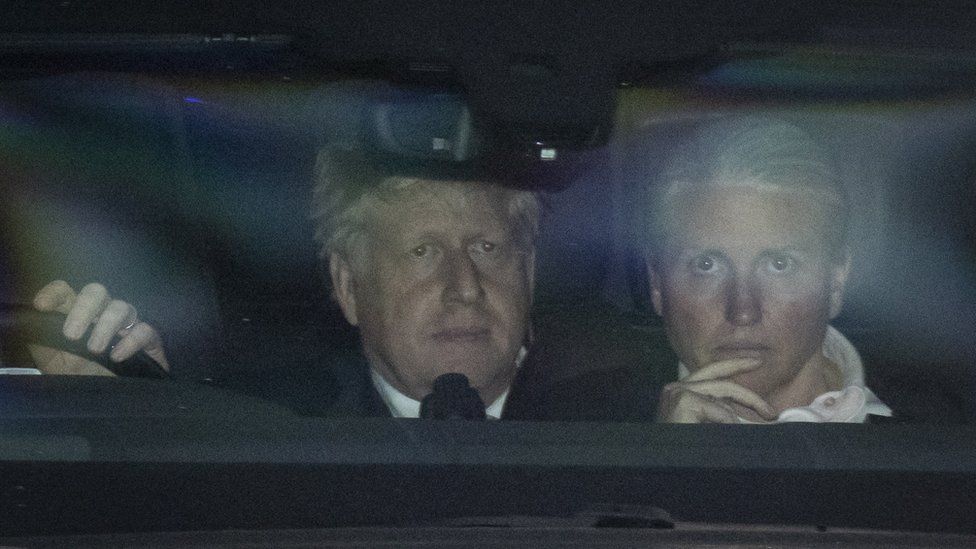Boris Johnson will know his opponents are thwarted, not defeated
Boris Johnson #BorisJohnson

By Chris MasonPolitical editor, BBC News

Image source, EPA
The first rule of politics: learn how to count. Mathematically, Boris Johnson was the winner in Monday’s confidence vote.
The second rule of politics: numbers often only tell so much of the story. You can claim victory and be robbed of authority in the same moment.
History tells us some things: Sir John Major in 1995 and Theresa May in 2018 both won confidence votes with a bigger proportion of their MPs supporting them.
Sir John was crushed in a general election two years later. Mrs May was out of power six months later.
There is a difference now: Boris Johnson can point to his own thumping majority from the last election for a start.
But the simple truth is when more than four in ten of your own MPs think the country would be better off without you, you have a problem.
That number – 148 – will hang around Boris Johnson’s neck for the some time; perhaps the rest of his time as prime minister. His supporters know that, as do his critics.
Let me offer you a brief glimpse into my WhatsApps and the private exchanges I’ve had with Conservatives of various ranks, and various outlooks on Boris Johnson.
Before that – I know what you might be thinking: why can’t reporters name the people who whisper things to them?
Well, in just the same way as there may, just may, be things you say about members of your family or friends or colleagues to others that you’d rather them not hear you say, the journalistic convention of being told something “off the record” formalises that approach in a professional context. It can allow for a greater candour.
‘He can survive’
A cabinet minister texts to say they “think the margin is enough to work with” but that “due respect” will need to be shown to the 148 rebel MPs.
They add: “And as we know, unlike Theresa May and John Major, Boris can defy all the normal rules when it comes to rehabilitation. If events go his way he can survive.”
A cool headed reflection, shorn of the public rhetoric about a decisive win.
Another minister spots further danger – for the party, as well as the leader – the prospect of what they call “civil war”.
We got a glimpse of that amid the skirmishes to determine Boris Johnson’s fate: a current cabinet minister, Nadine Dorries having a right old pop (and there’s no gentler but equally accurate way of putting it) at a former one, Jeremy Hunt, who spoke out bluntly about what he sees as the prime minister’s failings.
The culture secretary’s intervention incensed some of her colleagues. Others may have blushed at her directness, but agreed wholeheartedly with the sentiment.
‘The game’s up’
Another rule of politics: when the leadership question is being asked, the prospect of poisonous rows dripping public venom about a political party goes skywards.
And so where do the rebels find themselves now?
One of them says: “It’s time for the cabinet to show some leadership and realise the game’s up for the PM.”
An arresting demand which highlights how seriously they take this – how convinced they are Boris Johnson is now a loser.
Expect the prime minister to attempt a reset later this week with a focus on housing and his longer term vision.
But he will know his internal opponents are thwarted, not defeated.
Media caption,
The moment Sir Graham Brady announces Boris Johnson won the confidence vote